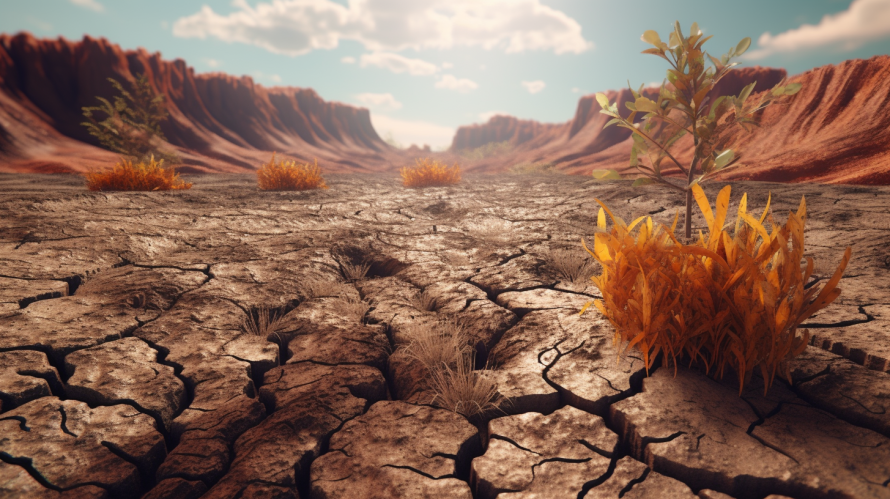 Desertification is a global environmental issue that affects many countries, including South Africa. It is a process by which fertile land becomes desert due to human activities and natural causes such as drought, deforestation, and overgrazing. Desertification leads to the loss of fertile soil and vegetation, which has significant economic, environmental, and social consequences. In this article, we will answer the question about what are the 6 effects of desertification.
Desertification is a global environmental issue that affects many countries, including South Africa. It is a process by which fertile land becomes desert due to human activities and natural causes such as drought, deforestation, and overgrazing. Desertification leads to the loss of fertile soil and vegetation, which has significant economic, environmental, and social consequences. In this article, we will answer the question about what are the 6 effects of desertification.
1. Loss of Biodiversity
Desertification leads to the loss of biodiversity, which is the variety of plant and animal species in an ecosystem. As the fertile soil and vegetation disappear, wildlife and plant species that depend on them for survival become endangered. In South Africa, desertification has led to the loss of many plant species, including succulents and aloes, which are essential for the survival of many wildlife species.
2. Soil Erosion
Desertification leads to soil erosion, which is the loss of topsoil due to wind and water erosion. The soil becomes less fertile, and it is difficult for crops to grow. In South Africa, soil erosion is a significant problem, especially in rural areas, where most of the population depends on agriculture. Desertification has led to the loss of topsoil, making it difficult for farmers to grow crops and feed their families.
3. Water Scarcity
Desertification leads to water scarcity, which is the lack of sufficient water resources to meet the needs of people and wildlife. As vegetation disappears, the soil becomes dry and unable to retain water, leading to a decrease in water resources. In South Africa, water scarcity is a significant problem, especially in rural areas, where most people depend on rivers and other water sources for their daily needs. Desertification has led to the drying up of rivers and streams, making it difficult for people to access water for drinking, cooking, and farming.
4. Food Insecurity
Desertification leads to food insecurity, which is the lack of access to sufficient, safe, and nutritious food. As fertile land becomes desert, it becomes difficult for farmers to grow crops, leading to food shortages. In South Africa, desertification has led to the loss of fertile land, making it difficult for farmers to grow enough food to feed their families and the country. As a result, South Africa depends on food imports to meet its food needs, which has significant economic consequences.
5. Poverty
Desertification leads to poverty, which is the lack of access to basic needs such as food, water, and shelter. As fertile land becomes desert, it becomes difficult for people to earn a living, leading to increased poverty. In South Africa, desertification has led to the loss of fertile land, making it difficult for people to earn a living through agriculture. As a result, many people in rural areas live in poverty, unable to access basic needs such as food, water, and shelter.
6. Climate Change
Desertification is one of the causes and effects of climate change, which is the long-term change in the earth’s climate due to human activities and natural causes. As vegetation disappears, the land becomes barren, and it is unable to absorb carbon dioxide from the atmosphere, leading to increased greenhouse gas emissions. In South Africa, desertification has led to the loss of vegetation, making it difficult for the country to reduce its carbon footprint and mitigate the impacts of climate change.
Conclusion
In conclusion, desertification is a serious environmental problem that has significant impacts on natural ecosystems and human livelihoods. The six effects of desertification are soil erosion, loss of biodiversity, reduced productivity, increased vulnerability to climate change, social and economic impacts, and political instability. In South Africa, the effects of desertification are closely linked to the impacts of drought, which has severe consequences for agriculture, food security, and water availability. Therefore, it is essential to take proactive measures to prevent desertification and reduce the impacts of drought, including promoting sustainable land management practices, restoring degraded ecosystems, and implementing effective water management strategies. By taking these steps, we can mitigate the effects of desertification and ensure a sustainable future for both the environment and the people who depend on it.
